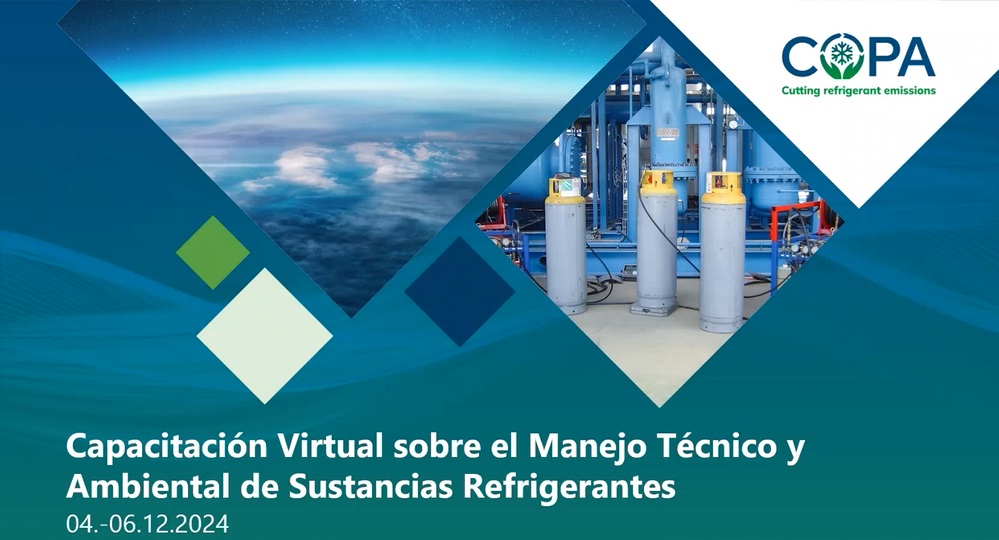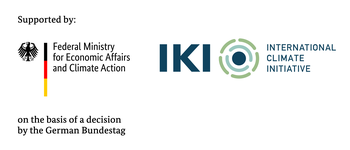
Virtual Training on the Technical and Environmental Management of Refrigerants for Latin America and the Caribbean
With around 100 participants taking part in the training over the course of the three days, the training was a huge success. The capacity building reached professionals from COPA member countries and beyond, such as Costa Rica, Honduras, Ecuador, Dominican Republic, Mexico, Colombia, and Chile. Although primarily targeting technicians and trainers from the RAC sector, it brought people from various sectors and stakeholder groups together to learn about technical and environmental aspects of end-of-life management in the RAC sector. Representatives of the countries’ Ozone Units and representatives of the private sector, such as collection centers, were also present to share in the exchange of knowledge. This virtual training focused on sharing good refrigeration practices related to the servicing, installation and disposal of refrigeration and air conditioning equipment, with the aim of ultimately mitigating and reducing the adverse environmental impacts of ODS and HFC refrigerant emissions contributing to ozone depletion and global warming. As Carlos Ferney Lopez Prieto explains, such trainings are crucial because “we worldwide RACHP technicians will contribute a great deal in reducing global warming and the depletion of the ozone layer”.
Primarily, the training covered the recovery and recycling of refrigerants, the regeneration of refrigerant gases, and the destruction of refrigerants, emphasizing the associated technical and environmental aspects to consider. The trainer used digital tools such as a simulator of a refrigeration system to apply and visualize the theory, hereby engaging the participants and significantly improving the virtual training experience. The interactive and open nature of the training allowed for good participation and dialogue. Additionally, it facilitated knowledge sharing between countries and sectors, hereby creating a space to not only learn from the training but also from each other. As stated by a participant, “to change habits, we need to be incentivized. We are too disconnected; we need to create this narrative that unites the initiative to achieve [change]”. The last session was concluded with a sharing round, which fostered dialogue about the circumstances of each country’s RAC sector regarding green cooling and opened avenues for potential future cooperation.
If you are interested you can find the links to the three workshop sessions here:
